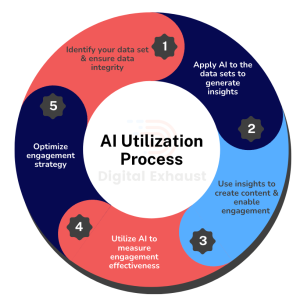
If you already use revenue forecasting, it is clear that there are a lot of factors that need to be considered. From accounting for different client requirements to adjusting for team size, there are a lot of areas that can make or break your revenue forecasting model. A lot of those are simple to factor into a revenue prediction and are pretty easy to remember to adjust as well. There are other factors that are less obvious and often overlooked, such as the market or staff experience. Take a look at these three areas that you should address when you’re setting up your revenue forecasting for the next period:
1. Take Market Outlook into Consideration
With revenue forecasting, it’s all about being as accurate as possible. That means that aside from looking at your internal history, you also need to take a look at anything that may cause changes from outside the agency. Market outlook is one huge factor that can affect revenue.
If you sit back and think about it, it’s fairly obvious. You’ll be able to command more for each project when the demand is high. If clients are seeking you out for work without any significant marketing effort, that’s a good sign. You can charge more for the same amount of work output. On the other hand, if you’re beating down doors to get a new project, chances are that your competitors are in similar situations. The entire market is a little slow, so things will be more cutthroat than they were on the last project. You’ll probably be relegated to a lower bid amount if you do not want to risk losing the project.
Remember that there are occasions that arise where the market outlook is bleak (or superb) yet your actual revenue is not impacted. For instance, if you have a loyal client that trusts your work and is not looking to find a lower price elsewhere, your forecasted revenue doesn’t necessarily have to be adjusted for the dismal market status.
2. Adjust for Staff Experience
Let’s imagine for a moment that you have two teams that will be working on very similar projects for the foreseeable future. They are identical in makeup and structure, save for that one team is composed solely of creatives who have less than two years of experience (suspend your disbelief as to why you might put a team like this together!). The other team has the same number of people in it, but the least experienced creative has 15 years of experience.
Would you expect each team to produce the same quality of work in the same amount of time?
No. And while you’re still scratching your head as to why we might throw the most inexperienced staff all on one team together, the facts still stand. Staff experience has a significant impact on billable hours for the project, which, in turn, will have a contribution to revenue. To make revenue forecasting as accurate as possible, look at the team makeup for your upcoming projects. Compare it to the previous projects you’re using as a baseline and adjust your revenue forecast accordingly.
3. Accept Previous Revenue as a Factor, Not a Benchmark
After looking over everything, examining all of the numbers with a fine-tooth comb, you’re still finding that the forecasts are a little off. It’s not the end of the world, but you’re wondering if you can make it more accurate.
The short answer is yes. But you’ll need to use a little bit of your own prediction capabilities. You can account for the market and for staff experience. But if things occur that you didn’t predict, that changes the forecast model. Going with your gut isn’t always advisable, but if you’re looking for the most accurate revenue forecasting numbers, it’s a bit of a murky area. You can stick to straight logical analysis and get pretty close.
Or you can start using some of your own feelings on the situation. Do you think that the booming market is only a temporary thing and should not be weighed as heavily when forecasting? Maybe you’re noticing that the staff you have slated for the upcoming project made a big step forward on the last one, and they’re around the learning curve enough that they’ll be a huge asset instead of an anchor.
Whatever your sentiment, it’s a guess at best. But if you make small adjustments to your revenue forecasting model based upon instinct, it could result in a more accurate set of figures for the next period. Realistically, if you’ve already accounted for every other factor, that’s the last piece of the puzzle that can be tweaked to make your numbers more accurate.
While it’s hard to hit a home run with every revenue forecast, it is possible to be quite accurate. And when your accuracy is good, and repeatable, that makes the revenue forecasting a lot more reliable. This, as we all know, means that we can trust the numbers a lot more. So when it comes time to ask for more resources, the numbers can speak for themselves.
Business & Finance Articles on Business 2 Community(90)







